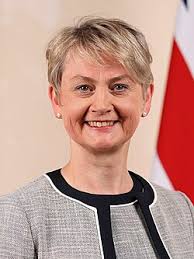
Introduction to the UK Home Secretary
The UK Home Secretary is one of the most significant roles in the British government, overseeing critical areas such as national security, immigration, policing, and criminal justice. As part of the cabinet, the Home Secretary plays a crucial role in shaping policies that affect the safety and well-being of citizens. The role has gained heightened importance with the rising concerns over issues like immigration and domestic safety in recent months.
Current Home Secretary: Suella Braverman
As of October 2023, the incumbent Home Secretary is Suella Braverman, who has taken a strong stance on immigration control and law enforcement reform. Braverman has been vocal about the need for stricter measures to address irregular migration, which has become a critical issue amid increasing numbers of asylum seekers crossing the English Channel. Her policies often reflect a commitment to the Conservative Party’s agenda of reducing immigration and enhancing border security.
Recent Developments and Initiatives
In the past month, the Home Secretary announced a new strategy aimed at combating human trafficking and illegal migration. This initiative includes increased funding for border security and collaborating with international partners to tackle smuggling networks. Furthermore, Braverman has advocated for the use of technology in policing, proposing that local law enforcement agencies adopt advanced surveillance methods to enhance crime detection and prevention.
Additionally, the Home Secretary has faced considerable criticism over the government’s handling of asylum applications, particularly regarding the length of time it takes to process claims. In response, Braverman has pledged to streamline the asylum system, promising reforms to make it more efficient. However, critics argue that proposed changes could jeopardize the rights of vulnerable individuals seeking refuge.
Public Response and Future Implications
The public response to Braverman’s policies has been mixed. While a segment of the population supports stronger immigration controls, others are concerned about the implications for human rights and the treatment of asylum seekers. Various advocacy groups have raised alarms about potential violations of international laws regarding refugee treatment, urging the government to approach the issue with empathy and transparency.
Conclusion
As the UK navigates complex socio-political challenges surrounding immigration and public safety, the Home Secretary’s decisions will play a pivotal role in shaping the country’s approach to these issues. The ramifications of these policies will likely influence public opinion and may impact future elections. Readers should remain aware of these developments as they are crucial to understanding the evolving landscape of UK governance and social policy.
You may also like

The Evolving Role of the Manager in Modern Business

Understanding the Current Political Landscape in the UK
